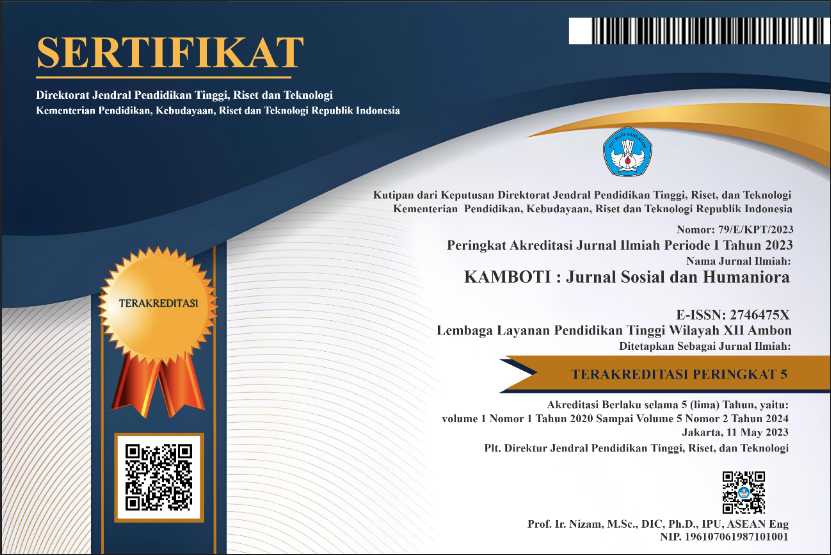Rethinking Sustainable Development Goals (SDGs) among Karen “Longneck” Women Hill Tribe in Northern Thailand
DOI:
https://doi.org/10.51135/kambotivol1issue1page85-95Keywords:
Karen , citizenship, SDGs, tribal tourism, northern thailandAbstract
The Karen tribe, originating from a branch within the Burmese Kayan ethnic group, now comprises the most considerable portion of Thailand's ethnic highland population. The tribe has been migrating throughout Thai-Myanmar mountainous border, as the impact of armed conflict between Karen nationalist and Burmese government since the 1950s and as democracy faltered in Myanmar. In the last two decades, the number of Karen people who migrated to Chiang Rai has been increasing due to the new industry of tribal tourism in the province. However, for Thai people, the hill tribe people are still considered alien or the other, but their presence must be integrated into Thai society. Therefore, the Thai government issued a special identity card for the hill tribes identifying them as people belonging to ethnic minorities, yet, non-Thai citizens. There are currently three categories to recognize hill tribe people in Thailand based on the Cabinet resolutions and laws passed to reflect the level of the state's acceptance of the citizenship status. However, this policy brings contradictive sense, especially in terms of citizenship rights and fulfilling SDGs for the hill tribes. This research focuses on Karen "longneck" women that live in tambon Nanglae, Amphoe Mueang Chiang Rai, named Kayan Lahwi, or the Padaung, the sub-group of the Red Karen. This research's primary purpose is to specifically perceive the impact of Thai citizenship laws on the current social-economic sustainability of the Padaung Karen women living in tambon Nanglae, Amphoe Mueang, Chiang Rai. This research applied qualitative methods by using literature data, interviews, and participant observation to gather information. Close inspection will reveal challenging issues for Padaung Karen women in Chiang Rai to achieve sustainability in income (SDG 1), food security (SDG 2), health (SDG 3), and education (SDG 4) for their community.
Downloads
Published
09-10-2020
Issue
Section
Articles
License
Copyright (c) 2020 KAMBOTI: Jurnal Sosial dan Humaniora

This work is licensed under a Creative Commons Attribution-ShareAlike 4.0 International License.
How to Cite
Dania, M. (2020). Rethinking Sustainable Development Goals (SDGs) among Karen “Longneck” Women Hill Tribe in Northern Thailand. KAMBOTI: Jurnal Sosial Dan Humaniora, 1(1), 85-95. https://doi.org/10.51135/kambotivol1issue1page85-95



